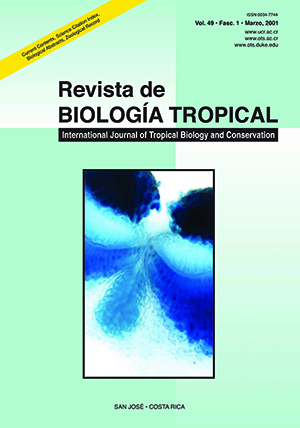Abstract
Zooplankton was surveyed in a tropical lagoon system of the northern coast of the Yucatan Peninsula in high tide, December (1998) and low tide, March 1999 (northerlies season). Zooplankton biomass was measured, zooplankters were counted, and copepods were identified and quantified. Despite the fact that both months were influenced by winds from the North, they showed a different salinity gradient which developed a particular structure of the zooplankton community. Biomass tended to be accumulated in certain areas apparently because of the high residence time of water in Chelem, the forcing effect of the northerlies, and of the tidal current. Biomass values suggest a relatively high secondary production when compared with other systems of the Yucatan Peninsula. The distribution of the copepods Acartia lilljeborgii and A. tonsa is related to saline conditions and tidal flow. The overall faunistic and hydrologic data suggest that even during a single climatic season, the zooplankton community shows strong changes due to mesoscale hydrological processes.##plugins.facebook.comentarios##

This work is licensed under a Creative Commons Attribution 4.0 International License.
Copyright (c) 2001 Revista de Biología Tropical
Downloads
Download data is not yet available.


